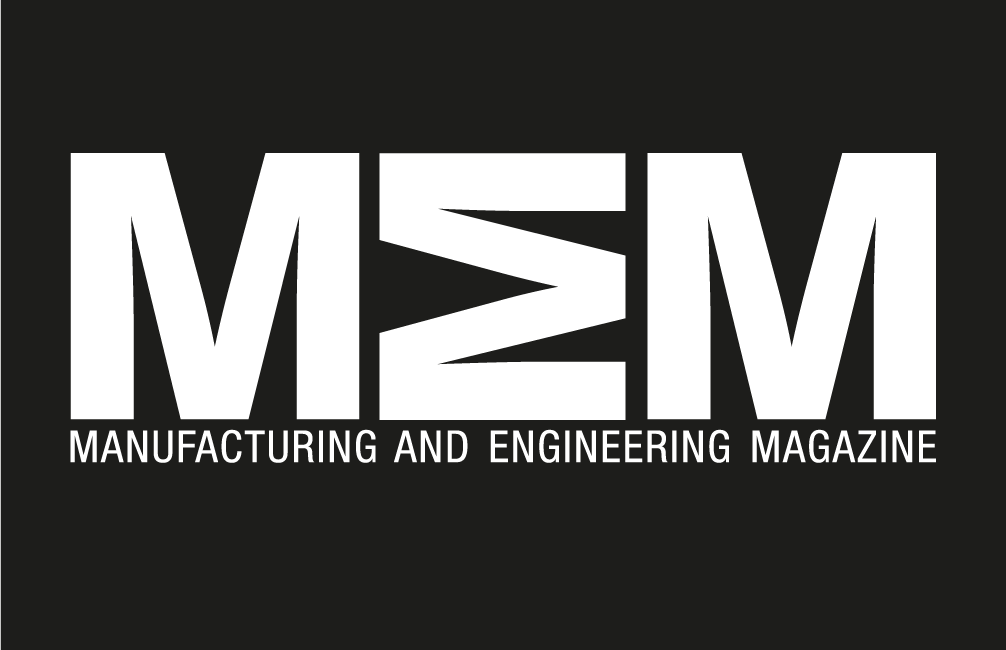Get the Maximum Out of Your Facilities with FBX

Managing Director of FBX Solutions, Frank Blahuta, talks to Manufacturing & Engineering Magazine about his background in business and the important role the Blackburn-based company can play in helping businesses relocate and become more efficient. Hi Frank, tell us a bit about your background in business and the industry? After leaving school at 16, I took up a mechanical apprenticeship at BAE Systems as a mechanical fitter on the shop floor, where I worked on a variety of aircraft, including Airbus, Tornados and even a Spitfire! Following several promotions, I worked my way up to become the Quality Manager UK of the Saudi Support Division. From there I moved to Esnad Limited and spent four years in Saudi Arabia as Head of Quality Assurance, operating and maintaining four VVIP Aircraft for RSAF, as well as implementing all business systems to ISO 9001. I then moved to EADS as Senior Manager of Quality Assurance before becoming Director of Quality and Business Systems, and from there I moved to HFS Managed Services, a management consultancy providing bespoke business solutions to defence and security businesses, as Managing Director. My last full-time role was at Allen-Vanguard Corporation, a global leader in providing counter-terrorism solutions, where I spent four years in various roles, including VP and General Manager, VP of Business and Organisational Effectiveness – based in Ottawa, Canada – and VP of Quality Assurance. What does FBX Solutions do? FBX helps small-medium sized businesses in the manufacturing and logistics industries get the maximum value out of their facilities through our dedicated facilities change management service. Making these changes can be very difficult for companies who may not have the expertise to put an experienced in-house team in place to manage the complex process of changing facilities, but we have the expertise to manage the entire facilities change process to a successful conclusion. We initially consult with senior management to understand their strategic objectives and how the current facilities will need to change over time. That could mean anything from a complete relocation to optimisation of their current facilities. We really do offer a one-stop shop and a bespoke service to each client, working with them to make sure they get exactly what they need to take their business forward. How did FBX Solutions start? When I returned to the UK from Canada in 2012 I decided to set up my own management consultancy company, FBX Solutions, which was originally started to offer consultancy support to businesses in the UK by delivering quality projects to implement Quality, Environmental and Health and Safety Management Systems and lean manufacturing. Due to my previous expertise in relocating businesses, I was brought in by Lonestar, who manufacture and supply precision-engineered components for the global energy markets and was instrumental in getting FBX on board to project manage their relocation from start to finish. Since then FBX has worked with and helped several businesses to successfully manage new facility projects and subsequent relocations. FBX has steadily grown over the years and now offers a full turnkey package for client relocation or refurbishment tasks, including reviewing the current facility footprint and usage, recommending efficiency improvements, drafting the business case, developing detailed construction and layout designs, obtaining the necessary planning approvals, running a full tender process with construction companies, managing the initial construction or fit out, and finally assisting clients with their relocation planning and mobilisation. This means that a company MD has one point of contact for all their project requirements and does not unnecessarily tie up members of their management boards who are already busy managing the business. Tell us about some of the biggest relocation projects? For the Lonestar relocation, we were tasked with taking three limited companies on four different sites and bringing them under one company’s management on a single site. We had to look at the size of each space, how they utilised that space and how efficient the companies ran to what they needed. Running parallel with that, we were asked to look at the prospect of relocating LoneStar to a new site, so we looked at brand new builds and existing builds and how much space they would finally need. We found a 115,000 sq ft facility and put a plan in place with architects, designers and a construction company, leased the building and managed the whole design and redevelopment of the new site. We are currently working on a relocation for a South East based client, who designs and builds products for the defence and security sectors, which is on target to be ready next January/February. After being initially appointed in 2015 to assist with the upgrade and management of their Health and Safety system, FBX were asked to project manage the construction of a 45 sq ft manufacturing facility. The client originally had a facility that was 27,000 sq ft spread over six sites which we found to be totally inefficient due to logistical reasons. We reviewed several existing locations before recommending to the client that we design and build a brand-new purpose-built facility. How do you see FBX Solutions progressing in the future? The consultancy roles will always run in parallel with the facility relocation management, but the real appetite is to grow the relocation service that we offer as we feel it is providing a unique service to help small-medium sized businesses grow. Additionally, a key offering from FBX is that we can also overhaul clients existing management systems so that the company can operate in a more efficient and productive manner following their decision to relocate or refurbish existing facilities. We are now also offering associated training services to clients, such as health and safety and Quality Management, so we are looking to develop that area of the business in the future. If you are thinking of growing or relocating your business now or in the future, contact FBX on 01254 832582 or visit https://www.fbxsolutions.co.uk/ Manufacturing & Engineering Magazine | The Home of Manufacturing Industry News
Contract Hire – Why It Pays to Keep Your Business Flexible

According to Business Dictionary, flexibility is: ‘The ability of a system, such as a manufacturing process, to cost effectively vary its output within a certain range and given timeframe.’ It is crucial and one of those things that, as the founder of a company, we hope we will encourage and foster, but implementing it is sometimes easier said than done. Many of us will have been employed in workplaces before where there are bosses or managers utterly stuck in their ways, in the methods and technology they use. The common saying is: Thatâs the way we do things here. That could apply to a company process, such as software or HR, or it could apply to a way financial transactions occur. As an example, take the leasing of vehicles, and its booming popularity within both the personal and business sectors. According to figures gathered from the Finance and Leasing Association, the value of the leasing sector grew by a gigantic 41.8% in 2016 to £1.523 million, and now accounts for 8% of the new car finance market. Meanwhile, hire purchase â where a customer pays a much higher monthly premium per month, and owns the car at the end of an agreed term â is falling dramatically, by as much as 15% in the same time period. Why would this be? Surely we want to own our vans or cars? Perhaps so, but for many of us that desire might be offset by the need to drive a new vehicle, no matter who the owner might be. Perhaps we donât want to be concerned about maintenance of the vehicle, and would rather pay a slight amount per month for this to be dealt with. Maybe weâd like to swap cars regularly, but donât want to go through the hassle of finding a seller. Leasing is a solution to each of these concerns. One of the biggest challenges for a business is cash flow; unpaid bills, a lack of income, computer error or external factors can all put a freeze on resources at key times. One way of legislating for these effects is to have more money to hand or in savings, should a crisis situation arise. Leasing might not be the only way to guarantee that youâve got more money to play with in an emergency â a prudent financial strategy is a stronger overall approach â but it can really help. Since youâre not paying for the entire value of the vehicle, and instead only renting it and paying an amount appropriate to its depreciation, the cost is far cheaper per month than the amount you would pay if you were actually buying the vehicle. All youâre paying for is the difference in cost between a new vehicle and what it will cost in two, three or four yearsâ time, spread over monthly payments. Therefore, with some vehicles you might save £2-300 per month â which could be allocated elsewhere in the company where the money is more needed. There are costs and benefits of owning your own vehicle as opposed to leasing. Ultimately it is your decision, and depends on how important flexibility is to your business. Manufacturing & Engineering Magazine | The Home of Manufacturing Industry News
Steel Industry Further Rocked by Chancellor’s Budget

Steel Industry Further Rocked by Chancellor’s Budget : Following the release of the chancellor’s Budget yesterday, businesses have collectively welcomed plans to cut corporation tax, many describing the move as long overdue. With the absence of support for the steel industry however, the release of George Osborne’s annual Budget has also been ravaged by criticism. Corporation tax is set to reduce and will stand at just 17% by 2020, the Chancellor promised yesterday. The 3% cut follows Osborne first tax reform back in 2010 which saw corporation tax slashed from 28% to 20% under the promise of a strong and stable economy with principles of growth and fairness. With that in mind however, Osborne may struggle to pledge his commitment to the same core values. The threshold for business rate tax relief is set to double. And while this will significantly reduce the number of firms paying the levy (with as many as 600,000 firms expected to be newly exempt), many have claimed the change in policy will only benefit SMEs and continue to leave larger companies and OEMs paying an unfair rate of tax. Mike Cherry, Policy Director at the Federation of Small Businesses, concurred: The chancellor has listened to our calls for the tax system to be made simpler for small businesses and the self-employed and taken important action on business rates. In general, business rates will also rise at a far slower rate and will be linked with the consumer index of inflation. Again, the biggest reprieve will be for small businesses who, under current policy, pay rates according to the higher retail prices index. Most talked about however, is what the Chancellor has failed to do. Over the past year, Tata Steelâs Scunthorpe-based manufacturing plant has regularly announced job loses, now totalling over 3,000. Like many others in sector, Tata Steel blames a combination of high energy costs, the increased momentum of the environmental agenda, and an increasingly competitive market overseas. The Chancellor was hoped to alleviate some of those pressures at yesterdayâs budget though failed to make the changes steelworkers are said to so sorely need. Plant and machinery removal will continue to be factored into the calculation of business rates for firms, hiking up the tax considerably for all those in the sector. In many respects, this discourages firms from investing in new facilities or equipment in a bid to keep costs down. In turn, the UK remains behind in the research and development, as well as environmental, stakes; thus begins a cycle in which businesses are wrought by hardship. Various trade associations and firms have emerged to lobby for a U-turn on Osborneâs plans. One waits with baited breath to see what the future of the UKâs steel industry has in store. Manufacturing & Engineering Magazine | The Home of Manufacturing Industry News


